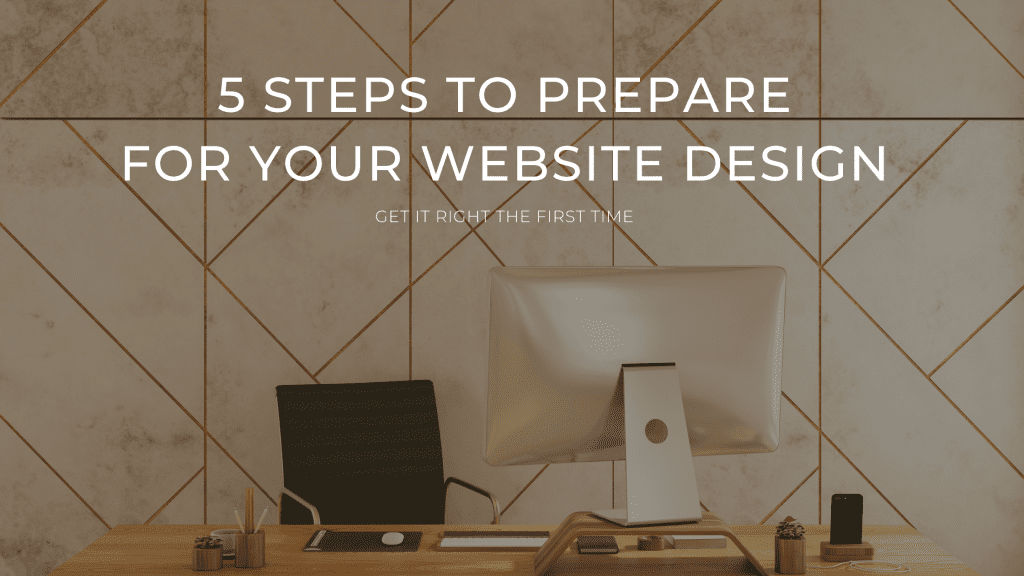Professional branding is a powerful tool and, when done strategically, branding can help stand out from others in your niche. As you start your journey in branding, you may find that one key question arises: What is a personal brand vs a business brand, and which category do you fall into?
Both personal and business brands can be very powerful and help your business progress further. However, you may find that one is more suited for you and your goals than the other.
As we dive in, this article should help you decide which one might align with your future goals – both in business and as a person. While personal brands have become more and more popular over the years, that doesn’t mean that they are the right fit for everyone.
Before picking which brand you want to create, let’s take a look at the differences between a personal brand vs a business brand, as well as some key factors to take into account as you make your decision.
What is a personal brand vs business brand?
Before deciding whether you want to create a personal brand or a business brand, it’s important to understand what each of them actually entails.
Personal Brand
A personal brand is a brand that is centered around you as a singular individual. The brand itself will be tied to your name, and you will be the face of your brand. Some great examples of people who are perfect fits for personal brands are:
- Authors
- Artists
- Public figures
- Influencers
All of these careers build brands around themselves; whether it is the words they write, the art they create, or the content they post, it is all centered around them. Now, one key thing to note is that just because you create a personal brand revolving around you as an individual doesn’t mean you have to be the only person involved in your brand.
You can absolutely still have a team around you that helps you run your brand, like managers, virtual assistants, editors, content creators, and more. The key, though, is that everything you and your team are created is centered around you. Some great examples of this are:
- Amy Porterfield
- Jenna Kutcher
- Oprah Winfrey

Business Brand
When it comes to a business brand, it is not created around a singular person but instead is positioned around the products/services that you offer and your specialty. These brands are constructed around a brand strategy that creates a foundation for the business with an ideal client or persona in mind.
For business brands, it is not as important who is running the business, but how it is run and what the business offers to its customers or clients. Business brands can also be any size. While we often correlate the idea of a business with a group of people, business brands can also just be run by a solopreneur.
Choosing between a personal brand vs business brand
Now that you know what the difference between a personal brand vs business brand is, let’s look at some of the questions you can ask yourself to help determine which one is best for you!
What are your plans for the business?
Your plans for the business and where you see it in the next 5-10 years are a great place to start when making your decision.
- Do you want to be the face of your business?
- Do you want to always be involved?
- Do you want to be able to step away for a bit and have the business continue to succeed?
These are all important questions when it comes to which brand will work best for you. There are no right or wrong answers to these, but they can give you insights into what is important for you.
For example, if you want to be able to step away and have other people on your team run your business for a bit (so you can take a vacation or leave during certain times throughout the course of your business), a personal brand may not be the best option. When your brand is centered around yourself, it is very difficult to walk away for a significant amount of time and have others run your brand without the risk of losing some of your following. You will always need to have some kind of tie into the brand.
However, if you have a business brand, your customers/clients will already assume that you have a team working with you, so you will be able to step away without any major impacts to your business.
What is your exit plan?
Now you may be thinking, “I haven’t even made my brand yet; why would I be thinking about my exit plan?” and while that is a valid question, I’m going to tell you why planning your exit is key.
When you think about your business and what happens when you walk away, most likely, one of three things are going to happen:
- You sell your business
- You pass it down
- You just close it
If your long-term goals for your business are to sell it or pass it down when you are ready to walk away, a business brand is most likely your best bet. Realistically, it is almost impossible to sell or pass down a personal brand since the brand itself is built around you as an individual. Anyone else running it just wouldn’t have the same success or they would need to rebuild it with their name and this can lead to a shaky brand transition.

What is your brand based around?
Finally, ask yourself what your brand is based around. Are you selling a product or service that doesn’t have any significant or tangible connection to you and your past? Or are you offering something that is directly related to you and your life experiences?

RESULTS THAT SPEAK FOR THEMSELVES
Download our case studies + client experiences to review the impact of our website design and brand strategy services have beyond the stunning deliverables you’ll find in our portfolio.
Let’s take a look at a few examples that highlight the difference between what your brand is based around.
Take a bookstore owner and an author. They are both in the same general industry – books, but their brands are completely different. An author brand is going to be a personal brand because the work that they put out is based around them. They are the ones coming up with the stories, and people are invested in the words they write.
If you take a look at the bookstore owner, it won’t make sense for them to have a personal brand. People are not invested in them as an individual, and they are not selling their own work. Instead, they have a business brand that is created on the foundation of selling other people’s work.
You can also think about someone who owns a gallery versus someone who is an artist. An artist’s brand is going to be centered around them, their life experiences, and how that translates into the art that they create.
The gallery owner, however, is going to have a business based around art in general. They can niche down and build their business around offering specific types or forms of art, but again, their business is not dependent on themselves. Rather, their brand revolves around the style of art and the type of artist that they feature.
Finally, consider an influencer and a clothing brand. An influencer’s brand is going to be centered around them. People follow them to see where they go, what they eat, what they wear, and the products they use.
The clothing brand, however, is going to have a brand based around the clothes they design. It is not going to be centered around any single individual person, but they can leverage the popularity of an individual to boost their brand.
This is something that we see often with clothing brands doing collaborations with influencers to offer lines based on that individual and the popularity of their personal brand.
Creating both a personal and business brand
What about creating both? This is something that we are seeing more and more often, and it is absolutely something that you can do. Often times you can use one of your brands to leverage the other and create two very successful businesses.
Take the Kardashians, for example. Each Kardashian has their own personal brand centered around themselves. Other companies will work with them because of the personal brand and following that they have created. But, they have also leveraged their individual personal brands to create business brands that they can then sell or pass on in the future.
Kim created Skims, Khloe created Good American, Kourtney created Lemme, and the list goes on. While they are all the faces of these companies, and people recognize them because of who created them, they are completely separate from each of their personal brands.
They can walk away from these businesses, have other people be the brand ambassadors, sell the companies or pass them on to their children, and they can continue to be successful.
This can also work the other way. You can create a successful business brand that can then position you as the founder of the business as an expert in your field. This can turn into opportunities for you to speak on and teach about your industry that can then help launch your personal brand. I have done this very thing recently and leveraged my business brand agency and podcast to build my personal brand as a sought after speaker in brand storytelling and brand building.
Or, for example, you could grow a successful copywriting business where you work with clients to create one-of-a-kind copy for their websites. As you build up your business, you become an expert in the copywriting industry and start to mentor and coach other beginner copywriters on how to be successful in the field. This can transform into a completely separate personal coaching brand that all started because of your business brand.
Final thoughts on a personal brand vs business brand
While there may not be a one-size-fits-all approach to picking between a business brand and a personal brand, these tips and questions should help narrow down which option is best for you. Both types of brands have their individual pros and cons, but choosing the correct one can help your business succeed in the long run.
Now that you know which option to choose, let’s make sure you have the perfect branding to represent it. Click here to get in touch and see how we can bring your personal brand or your business brand to life!




